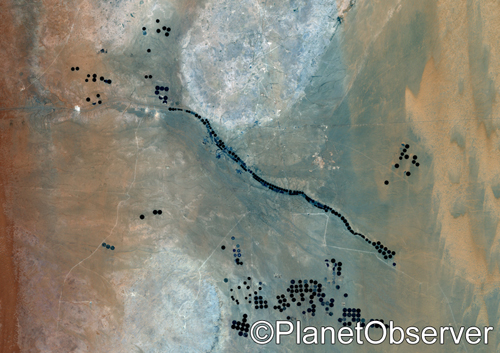The Gulf Stock Markets showed a mixed but optimistic picture Tuesday. This was boosted by strong corporate earnings, and expectations that the U.S. Federal Reserve will cut interest rates.
Market dynamics are complex because they reflect local factors as well as global monetary policy and geopolitical events that impact the region.
Dubai market to shine with positive earnings
Dubai’s main index was notable for its 0.9% increase, due to impressive performance from the major players of the banking and telecom sector.
Emirates NBD shares, which are a cornerstone in Dubai’s Financial Services industry, rose by 2.0% after a 13% increase over the expected annual net profit for its second quarter.
Shayne Nelson, CEO of Emirates Islamic, attributed the success to Emirates Islamic’s record profits and partnerships with Microsoft Corp.
Emirates Integrated Telecommunications recorded a 1,7% rise on Tuesday.
A robust pipeline and significant enterprise deals fueled the company’s performance, which led to an increase of 7.3% in revenues to AED3.6 billion ($980m) during the second quarter.
Fahad Al-Hassawi, CEO of the company, stressed its commitment to improving 5G coverage as well as transforming network and IT infrastructure in order to enhance long-term shareholder value and support growth.
Saudi Arabia is facing challenges due to the weakening oil sector
Saudi Arabia, on the other hand, saw its main index fall by 0.6% Tuesday. This was primarily because of weakness in industrial and energy sector.
Al Taiseer Group & Saudi Aramco experienced declines of 2,7% & 1,1% respectively.
Saudi Aramco is the largest oil company in the world. Its recent performance has highlighted the wider challenges that the Kingdom faces.
Saudi Arabia’s Vision 2030, which aims to reduce the dependence of Saudi Arabia on its oil revenue, is still facing obstacles.
Investors may be concerned about how fast these transformational efforts are moving.
Abu Dhabi’s market experiences minor setback
The market in Abu Dhabi, after a winning streak of six sessions, suffered a small correction on Tuesday, with a decline of 0.5%.
The pause coincides with efforts underway to revitalize trade negotiations with the European Union and highlights the link between diplomatic initiatives, market sentiment,
Qatar and Egypt make modest gains
Qatar’s and Egypt’s primary stock indices increased by 0.2% each, mirroring Dubai’s trend.
The modest increase in Qatar’s Index was largely due to the slight rise of Qatar National Bank. This reflects the stable performance of Qatar’s banking industry despite regional economic fluctuations.
Commercial International Bank reported a substantial profit growth year over year, which contributed to the index’s upward trend in Egypt.
The positive mood in the Middle East is boosted by this growth, which signals a potential economic recovery in Egypt and increased consumer confidence.
Geopolitical events and Fed rate reductions have a broader impact
Investor sentiment is complicated, as evidenced by the mixed performances of Gulf markets.
The market’s expectations are heavily influenced by speculation about possible rate cuts from the U.S. Fed. Investors seeking higher returns may be more inclined to invest in emerging markets such as those of the Gulf.
The geopolitical situation, especially in the Middle East continues to have a large impact on regional markets.
Gaza’s ongoing conflict and the possibility of its resolution will have significant economic and regional implications. Oil price fluctuation, which is closely linked to geopolitical developments, remains a major factor in Gulf economies that rely on hydrocarbons.
The region is pushing for a greater integration of its economy with the global market.
These initiatives can open up new opportunities for growth, diversification and reduce the Gulf’s vulnerability to volatile oil prices.
The post Gulf Stock Markets Surge: Dubai Leads with Earnings Boost as Fed Rate Cut Speculation Mounts will be updated as new developments unfold.
This site is for entertainment only. Click here to read more






